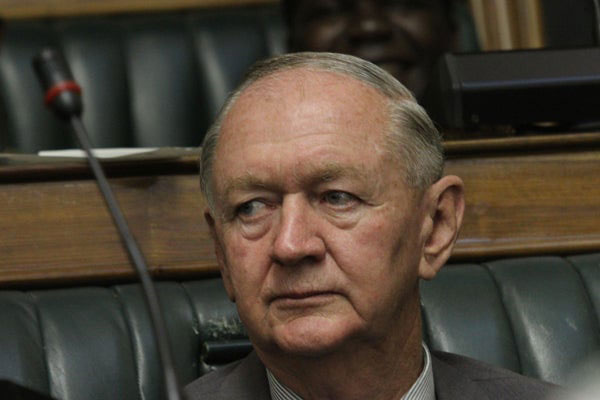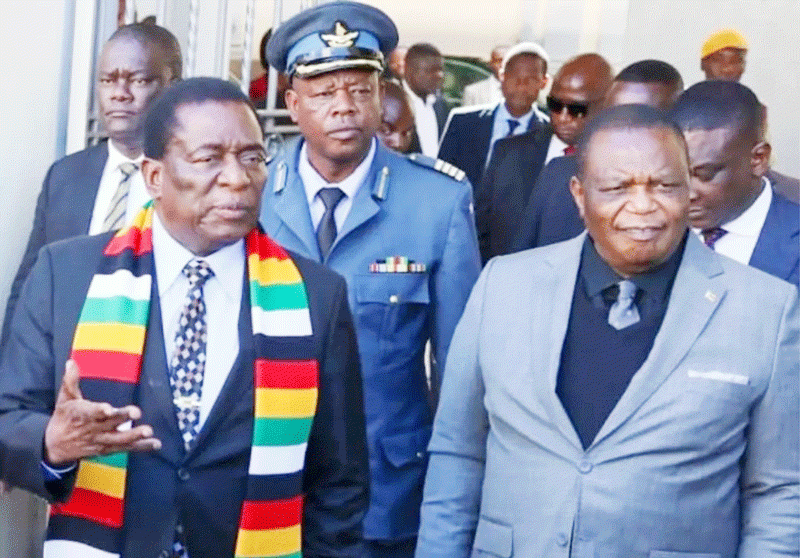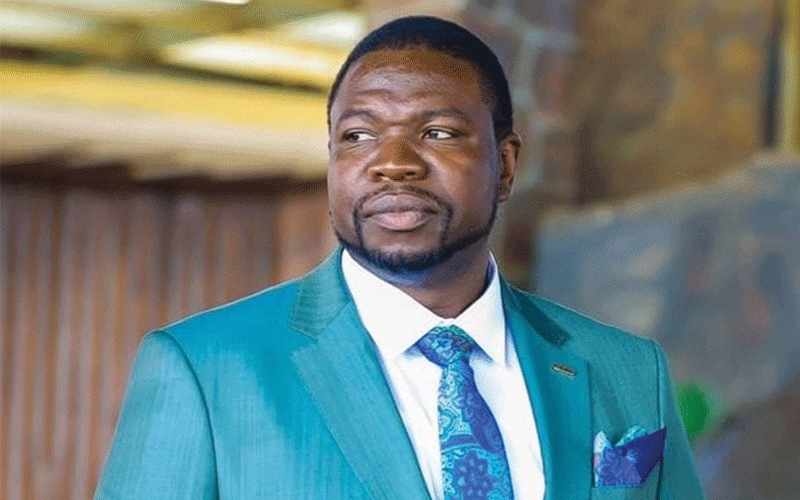
news in depth:BY EVERSON MUSHAVA
A fresh probe has revealed that the government facilitated a shady US$225 million deal meant to strip the comatose Zimbabwe Iron and Steel Company (Zisco) of its critical assets.
The investigation that The Standard, carried out in partnership with Information for Development Trust, established that President Emmerson Mnangagwa had full knowledge of the deal and gave it a nod as some of his allies benefited.
Last May, little-known ZimCoke, headquartered in Harare’s Ballantyne Park, paid only $1 as a transaction fee that helped it grab the multi-million dollar coke ovens and an array of other key assets from the integrated steel company.
There is a twist to the scandal, though, as Gift Mugano, the current Zisco board chairperson, is now seeking a review of the deal that his predecessor Nyasha Makuvise’s board seems to have been arm-twisted into approving.
Mugano, it was established, is insisting that the ZimCoke takeover did not adhere to best corporate governance practices and is worried that Zisco will effectively die out if its interdependent units were unbundled in line with the deal.
Mugano was this week adamant that all assets purported to have been taken over by ZimCoke remain on Zisco’s books.
Today The Standard details how the controversial deal never went through tender procedures, was railroaded through Cabinet and deliberately leapfrogged the Zisco board and management amid protests and boycotts.
- Chamisa under fire over US$120K donation
- Mavhunga puts DeMbare into Chibuku quarterfinals
- Pension funds bet on Cabora Bassa oilfields
- Councils defy govt fire tender directive
Keep Reading
The colonial government of Rhodesia and Nyasaland established the Rhodesian Iron and Steel Commission (Riscom) in 1942.
Riscom’s name changed to Rhodesia Iron and Steel Company (Risco) in 1967 and, at independence in 1980, it was renamed the Zimbabwe Iron and Steel Company (Zisco).
Documents show that the Zimbabwean government had an 89% stake in the integrated Zisco, with the remainder belonging to numerous, largely unheralded local and regional entities.
The other shareholders are named as Tonexon Investments (Pvt) Ltd, Franconian Investments Limited, Louth Minerals (South Africa), Amzim Iron and Steel Limited, Lancashire Steel (Pvt) Ltd and Zambia Copper Investments Limited. It could not be immediately established if any of those companies are linked to army generals, but there are indications that unnamed military officers had grabbed some iron ore claims.
A dossier written by Eddie Cross, a former Zisco consultant-turned-board member, on September 26, 2018, months after the ZimCoke deal was signed, noted that the shady ownership of the claims was one of the factors that frustrated a US$10 billion deal with an Indian investor, Essar Africa Holdings.
Essar was in November 2010 roped in to resuscitate the steelworks through a deal that would have seen government shedding off a 60% stake, but the investor packed bags and left quietly five years later.
“No sooner had the ink dried on the deal than the Essar team discovered that they had to deal with a shadowy system of individuals with vested interests,” Cross wrote.
“The iron ore claims that were an essential part of the deal and were listed in the Zisco balance sheet had been ‘transferred’ to individuals, many of them in the military leadership.”
The individuals “demanded hundreds of millions of dollars” so as to surrender the claims to Essar, Cross added, but the investor refused to pay.
Essar, which assumed a liability of US$1 billion, including the US$300 million Zisco debt plus salary liabilities, had pumped in US$60 million for a four-year period.
With the Zimbabwe Revenue Authority on its back for all imported equipment, the Indian firm packed its bags and left, leaving the steel-making giant in ruins.
Government was also blamed for demanding a huge stake in the poorly negotiated deal.
Zisco had the capacity to produce at least a million tonnes of liquid steel from blast furnaces 3 and 4, but stopped operations in 2008 due to power outages, lack of capital to recapitalise and mismanagement.
Cross blamed the collapse on “criminal” incompetence, corruption and sabotage.
Government tried to lure an external investor, Global Steel Holdings, as early as 2004 as Zisco’s misfortunes worsened, but the deal fell through under unclear circumstances.
The search for an investor to sell a streamlined Zisco continued the same year and government brought in other suitors like R&F from China that offered to take over Zisco, but minus the coke ovens and its subsidiaries that included Lancashire Steel.
A ballooning debt to a German bank, KFW GMBH, based in Frankfurt, then forced government to scout for a third party to acquire the coke ovens and produce coke to settle the US$225 million debt in a controversial debt swap that would see Zisco pay the remainder of its overall debt amounting to around US$500 million.
That is when ZimCoke came in.
Cross said when the Essar deal finally collapsed, an unidentified group of people with longstanding links to Zisco discussed the possibility of leasing the coke ovens on site to produce metallurgical coke for the South African market.
The deal that started off as casual talk but was subsequently endorsed by Cabinet during the Government of National Unity, was not subjected to any tender, Cross noted.
“I had a casual discussion with one of the group (sic) and suggested that they consider a debt swap.
“I was on the parliamentary committee dealing with Zisco liabilities and I thought that a deal was possible involving the German bank KFW, which was owed nearly US$200 million for equipment and work on Zisco blast furnaces 15 years ago,” Cross said.
“They said they would be interested and I spoke to the minister of Finance (Patrick Chinamasa), who said it sounded like a good idea.
“In fact, he said to me that he was surprised anyone would want to pay real money for that pile of junk.”
A lean Cabinet committee chaired by Chinamasa was set up, eventually leading to the creation of ZimCoke.
“The decision was made in the context of a Cabinet decision not to try and sell the entire Zisco group, as had been the case with Essar, but to break up the company and do separate deals for each separate operation.
“The ZimCoke takeover was to be the first,” Cross revealed.
ZimCoke was founded by the late Bill Moore, who worked for a South African company, Fosbel, which repairs coke oven batteries.
Moore was contracted to repair Zisco’s oven batteries before his contract was terminated by the coming-in of Essar.
The Indian company intended to come up with new technology to replace the four batteries with 55 ovens each, but again, like the predecessor deals, it died a still-birth in 2015.
Desperate for another investor after government was forced to assume the ever-rising Zisco debt through a Cabinet decision on November 24, 2016, Moore offered to take over the coke ovens and produce coke in a $225 million KFW debt swap.
Moore’s son, Peter, is now the CEO at ZimCoke, while one of its former directors, Philemon Nhachi, now sits on the board appointed on December 11 last year.
ZimCoke negotiated directly with the Ministry of Industry and Commerce and no tendering was conducted, nor was there valuation of assets.
Minutes of board meetings show that neither the Zisco management nor board were consulted before the deal, which started under former president Robert Mugabe when Mike Bimha was Industry and Commerce minister, was agreed.
The deal was later railroaded by Mnangagwa and signed last May when Mangaliso Ndlovu, who refused to comment on the matter, was Industry and Commerce minister, after a series of negotiations between government and the investor without the involvement of Zisco management.
“Outstanding minority shareholders issue, contents of the tripartite agreement between KFW, ZimCoke and government of Zimbabwe were not availed to the Zisco board,” part of the minutes of the May 27 board meeting read, explaining why the board refused to sign for the transfer of assets from Zisco to ZimCoke.
Paper trail shows that ZimCoke was in direct, albeit informal, contact with Mnangagwa as the deal panned out.
In one of the letters by Nhachi that were obtained by The Standard, Mnanagagwa was eager to do a ground-breaking ceremony marking the Zisco takeover.
“This is an essential and urgent part of the process and needs to be completed before the ground-breaking ceremony.
“Informal contact with President Mnangagwa indicates that he would like to perform the ground-breaking and a formal invitation via the Ministry of Industry is in hand,” read part of a letter by Nhachi to the former managing director of Zisco, Alois Gowo, on April 30, 2018.
According to the deal, ZimCoke would use the ovens to produce coke, sell it and pay the KWF debt.
Apart from grabbing the coke ovens, ZimCoke would also take over 400 housing units plus 15 executive houses, 48% shareholding in ZimChem (a strategic subsidiary of Zisco) all refractory materials, which were purchased by the steelworks when it was repairing the batteries, pipes and electrical equipment.
The asset strip would also see Zisco losing granulated slag, which accumulated over the years and is used mainly by cement manufacturing companies, chilled pool iron (pig iron) produced from the furnace and Zisco wagons at the Dabuka hump marshalling yard as well as over 3 000 hectares of land.
There has been a furore over these deal contents, though.
A Zisco official who refused to be named said: “Ziscosteel has sold the houses and now remains with flats.
“So they (ZimCoke) are aiming to take over the flats and in the event Zisco is to be resuscitated, it will now have to rent flats for its workers from ZimCoke. “The 15 executive houses are all that remains for the Ziscosteel executives.”
Government agreed to the transaction and a signing ceremony was conducted on May 30, 2019, graced by Ndlovu, Local Government minister July Moyo and Midlands provincial minister Larry Mavhima, all considered to be strong Mnangagwa allies.
The signing ceremony was done three days after Makuvise’s board, on May 27, resolved not to sign the asset transfer to ZimCoke, raising several questions about its viability.
The board was dissolved the following day, and the commissioning of ZimCoke came immediately after.
“The board led by Makuvise refused to sign on May 27 and was summoned to Harare that same evening by Ndlovu who, in the company of Finance minister Mthuli Ncube, allegedly ordered the chairperson to sign the asset transfer document on claims that it was a Cabinet decision,” a Zisco insider revealed.
“The very Thursday, which the Makuvise board’s term expired, there was commissioning of the coke ovens project but, suspiciously, the outgoing board did not turn up.” Minutes of the May 27 board meeting further revealed the Makuvise board was not happy with the transfer of ZimChem, cola wagons and land to ZimCoke. “Management foresaw challenges in hiving off the ovens from the rest of the integrated steelworks as production processes were very much interlinked and interrelated.
“Of note was the fact that ZimCoke representatives and R&F properties specialists (in coke ovens) had both visited the works on 17th April 2018 indicating the need to resolve the issue urgently,” part of Zisco board minutes of November 30, 2018 read.
And minutes of a board meeting on May 27, 2018 say “the Zisco board resolved not to sign the above letters (transfer of assets to ZimCoke) and wrote to the permanent secretary (Ministry of Industry and Commerce)” citing its reasons.
The Makuvise board was, among other things, miffed by the plan to give special power of attorney to ZimCoke, in addition to the transfer of shares and stock to the suitor.
Allocation of an operating licence number 003883 to ZimCoke by the Zimbabwe Investment Authority on March 13, 2018 was academic.
Government had already approved the deal way back in 2017, as shown in an August 2017 email message from Cross to Daniel Mackenzie Ncube, a ruling Zanu PF functionary. Nicholas Ncube, believed to be Mackenzie’s relative, is now the ZimCoke board chairperson.
*The next installment looks at the viability challenges associated with the ZimCoke deal and how Mnangagwa’s cronies grabbed some Zisco assets.









